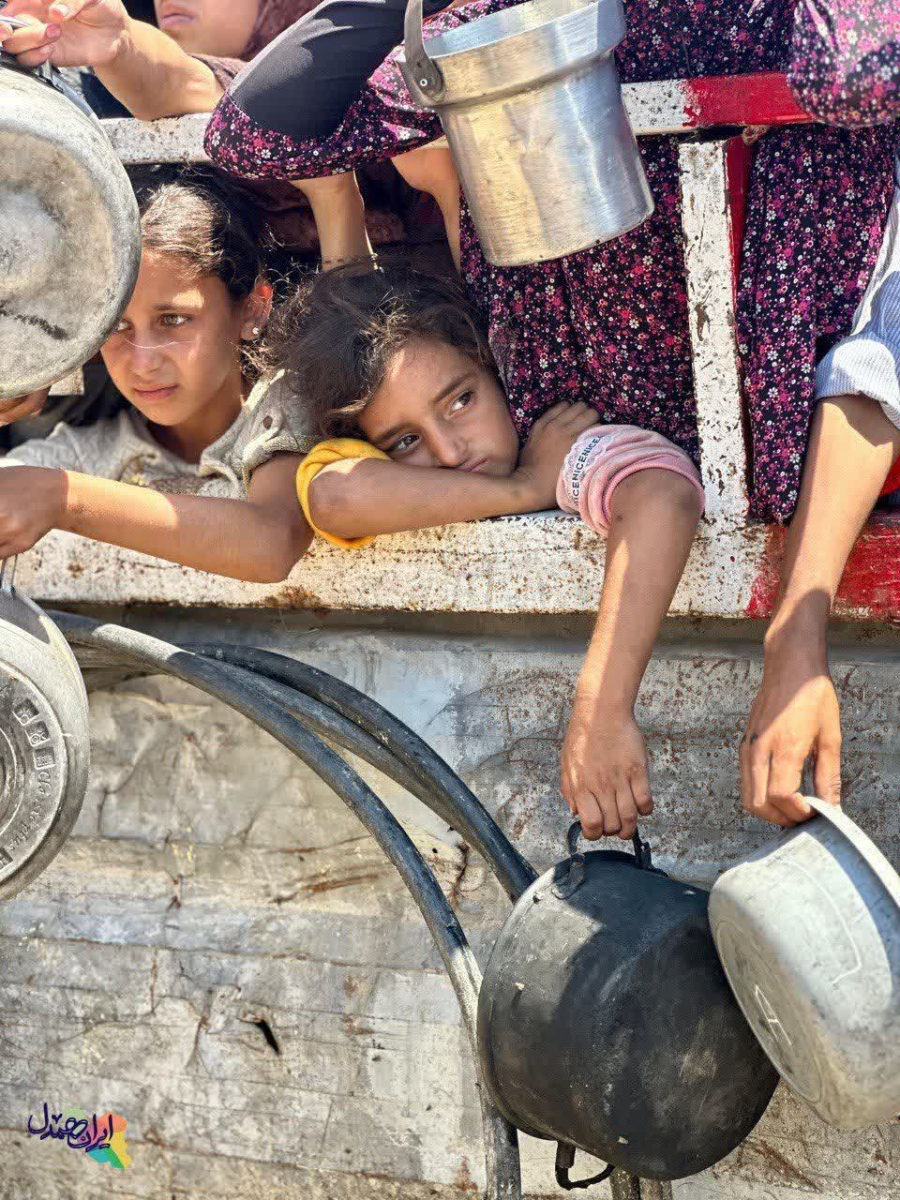According to Mehr News Agency, Leyli Taghrobi, a legal expert, wrote in a note about the criminal actions of the Zionist regime against the residents of Gaza: Since the beginning of the Zionist regime’s all-out attack on the Gaza Strip in October 2023, the world has witnessed one of the most widespread and systematic contemporary humanitarian crises. The complete blockade, the destruction of basic infrastructure, the interruption of the flow of food and medicine, and the attack on water and energy supply centers have all been in line with a military strategy that aims to bring the civilian population to its knees through starvation.
This approach is a clear example of a violation of Article 54 of the First Additional Protocol of 1977 to the Four Geneva Conventions. In this article, citing sources of international humanitarian law and the practice of international institutions, the international responsibility of the Zionist regime for the deliberate famine in Gaza is examined.
Article 54 of Additional Protocol I: Prohibition of the Use of Famine as a Weapon of War Article 54 of Additional Protocol I to the Geneva Conventions states:
“The use of starvation as a method of warfare against civilians is prohibited. It is also prohibited to destroy, render useless, or damage objects indispensable to the survival of the civilian population, such as food, agricultural products, sources of drinking water and water supply installations.”
The purpose of this article is to protect the civilian population in international armed conflicts and to prevent the use of means that directly threaten the lives of civilians.
Examples of violations in the Gaza War
A review of developments on the ground in Gaza since October 2023 shows that the Zionist regime has systematically and deliberately taken the following measures to use famine as a weapon of war:
1. Complete blockade of the Gaza Strip
Since the first days of the offensive, the passage of food, water, fuel and medicine into Gaza through the border crossings, especially Rafah and Kerem Shalom, has been blocked.
2. Destruction of vital infrastructure
Bombing of agricultural fields, water supply systems, food warehouses and bakeries has caused many food and water supply centers to be out of service.
3. Blocking humanitarian aid
UN and non-profit aid convoys have repeatedly been targeted or blocked, with trucks carrying flour and water being destroyed or seized in some cases.
4. Creating artificial famine conditions
According to the World Food Programme (WFP), more than 90% of the population in Gaza is at a critical level of food insecurity and the risk of death from hunger, especially among children, is serious and real.
The International Responsibility of the Zionist Regime
In international law, the violation of peremptory norms, including humanitarian norms, gives rise to international responsibility for the offending state. Here, the Zionist regime, through its deliberate actions in starving civilians, bears international responsibility for the following reasons:
1. Violation of customary and treaty obligations
Although Additional Protocol I has not been ratified by Israel, parts of it, including Article 54, are recognized as customary international rules. Therefore, this article is binding even for states that are not parties to it.
2. International Criminal Responsibility
The use of famine as a weapon of war in international criminal law is an example of a war crime and, in some cases, a crime against humanity. Article 8 of the Rome Statute (International Criminal Court) lists the deliberate destruction of resources essential for survival as a war crime.
3. The need for reparation and accountability
According to the draft articles on State Responsibility in the International Law Commission (ILC), the responsible state must compensate for the damage caused and prevent its recurrence. In the event of continuation and intentionality of these actions, judicial avenues for international accountability are also provided.
The response of the international community
Despite the severity and scope of the crimes committed, the practical response of the international community to the famine in Gaza has remained mainly at the level of political condemnations and public statements. However:
UN special rapporteurs have repeatedly considered the actions of the Zionist regime to be an example of the use of hunger as a weapon.
The International Criminal Court (ICC) is examining cases of war crimes in the occupied Palestinian territories, which may also include famine.
The International Court of Justice (ICJ) has raised points about the possibility of genocide and the use of famine in the case of South Africa v. Israel.
Summary and Conclusion
The use of famine as a weapon of war is not only a clear example of cruelty in war, but also a clear violation of the fundamental rules of international humanitarian law. The actions of the Zionist regime in Gaza, including the complete blockade, the destruction of food supplies, and the denial of aid, are all gross violations of Article 54 of Additional Protocol I. In addition to the catastrophic humanitarian consequences, these actions have created international responsibility for the regime.
The international community, international institutions, and human rights activists must more seriously pursue the criminal and civil accountability of the Zionist regime for these crimes. Silence in the face of famine means normalizing one of the most heinous instruments of war against humanity.

